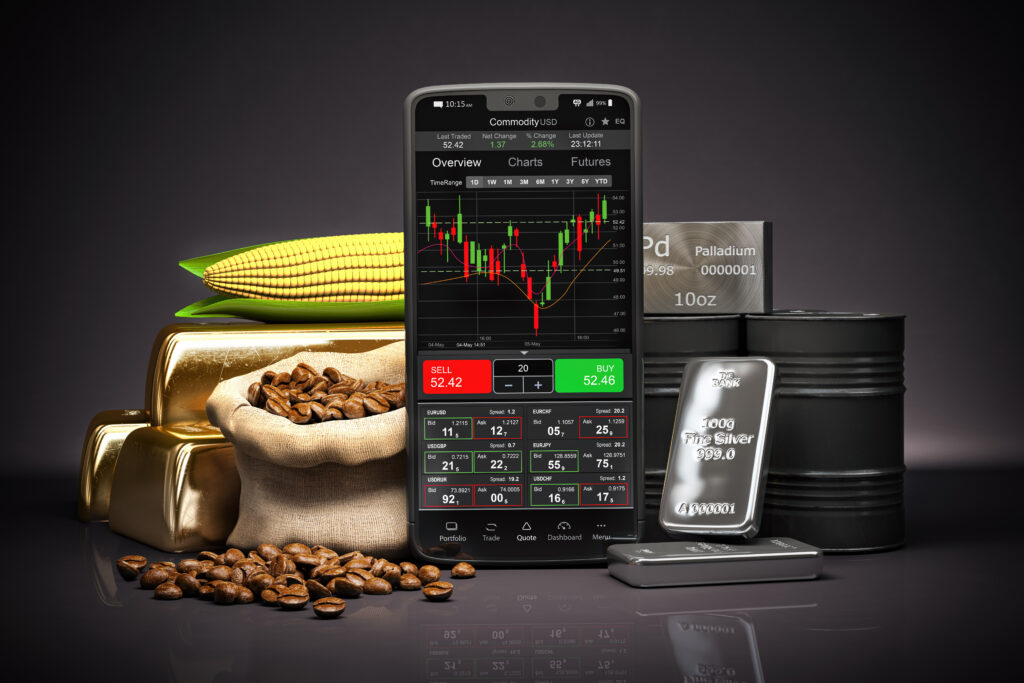The Effect of Global Food Security Issues on Forex Markets
Introduction
Global food security is a multifaceted issue that affects not only the availability and affordability of food but also has far-reaching implications for financial markets, including the forex market. This article aims to explore the intricate relationship between global food security challenges and forex markets, shedding light on how factors such as agricultural productivity, food import/export policies, and climatic changes influence currency values. As we delve into this critical topic, we will emphasize the primary keyword “Global Food Security” to provide a comprehensive understanding of its impact.
Global Food Security and Its Significance
Global food security is a critical and overarching global concern that has profound implications for humanity. It is defined as the state in which all individuals, at all times, have physical, social, and economic access to sufficient, safe, and nutritious food that meets their dietary needs and food preferences, enabling them to lead active and healthy lives. This fundamental condition lies at the intersection of several crucial aspects of human existence: physical health, social welfare, economic stability, and even social harmony. In this article, we will delve deeper into the intricacies of global food security, highlighting its far-reaching significance.
The Link between Food Security and Forex Markets
Food security is intricately linked to forex markets, forming a dynamic relationship where events and developments in one sphere have the potential to trigger significant repercussions in the other. Let’s explore the multifaceted connections:
Agricultural Productivity: Agricultural productivity is a cornerstone of global food security. When agricultural output is robust, it ensures an adequate supply of food, helping stabilize prices and ensure access to affordable nutrition. Conversely, when agricultural productivity is compromised due to factors like droughts, pests, or other natural disasters, it can lead to food shortages and increased prices.
These events directly influence a nation’s trade balance, as they affect the supply of both domestic and imported goods. Consequently, such fluctuations in trade balance can have a substantial impact on the value of a country’s currency in forex markets. Forex traders closely monitor agricultural reports, harvest forecasts, and the health of agricultural sectors worldwide to gauge potential impacts on currency values.
Food Import/Export Policies: Governments play a pivotal role in shaping food security through their trade policies related to food. These policies are often designed to safeguard domestic food security. For example, a government may impose import restrictions or tariffs on food products to protect its domestic agricultural industry. Alternatively, subsidies may be provided to bolster domestic production and maintain self-sufficiency in key food staples. These actions can have a significant influence on a country’s currency value.
Import restrictions and tariffs can drive up the cost of imported goods, contributing to inflation, and potentially leading to currency depreciation. Conversely, subsidies aimed at increasing domestic production can bolster exports and result in a stronger currency. Thus, forex traders pay close attention to government policies and trade agreements that impact food trade.
Climate Change: The global challenge of climate change is having profound effects on global food production. Extreme weather events, such as hurricanes, floods, prolonged droughts, and heatwaves, are becoming more frequent and severe due to shifting climate patterns. These extreme events disrupt agricultural supply chains, damage crops, and threaten food production. When a region experiences such a climate-induced disruption in food production, it can lead to food scarcity and higher prices.
These fluctuations can trigger currency fluctuations in forex markets. For example, if a major agricultural region is hit by a severe drought, it may experience reduced crop yields and increased food prices. This can impact the region’s trade balance and lead to currency depreciation. On the other hand, regions that are less affected by climate-related disruptions may see their currencies strengthen as they maintain stable food production.
In conclusion, the intricate relationship between global food security and forex markets underscores the vital importance of monitoring and understanding the dynamics between these two interconnected domains. Factors such as agricultural productivity, food import/export policies, and the impacts of climate change serve as critical influencers of currency values. As the world faces evolving challenges related to food security and environmental sustainability, the relationship between these issues and forex markets will continue to shape the global economic landscape.
Therefore, it is imperative for financial professionals and policymakers to remain vigilant in assessing the potential impacts of food security challenges on forex markets and, in turn, on the overall global economy.
Agricultural Productivity and Forex Markets
Climate Change and Its Influence on Forex Markets
Global food security issues are intricately connected to forex markets, with agricultural productivity, food import/export policies, and climate change serving as key influencers. As the world grapples with the challenges of feeding a growing population while combating the effects of climate change, forex traders will continue to closely monitor these factors to make informed trading decisions. Understanding the dynamics between global food security and forex markets is essential for both financial professionals and policymakers as they navigate an increasingly interconnected world.
In conclusion, “Global Food Security” is a pivotal keyword in comprehending the complex interplay between food security and forex markets, and its influence cannot be understated. As global challenges continue to evolve, so too will the relationship between these critical aspects of our global economy.

